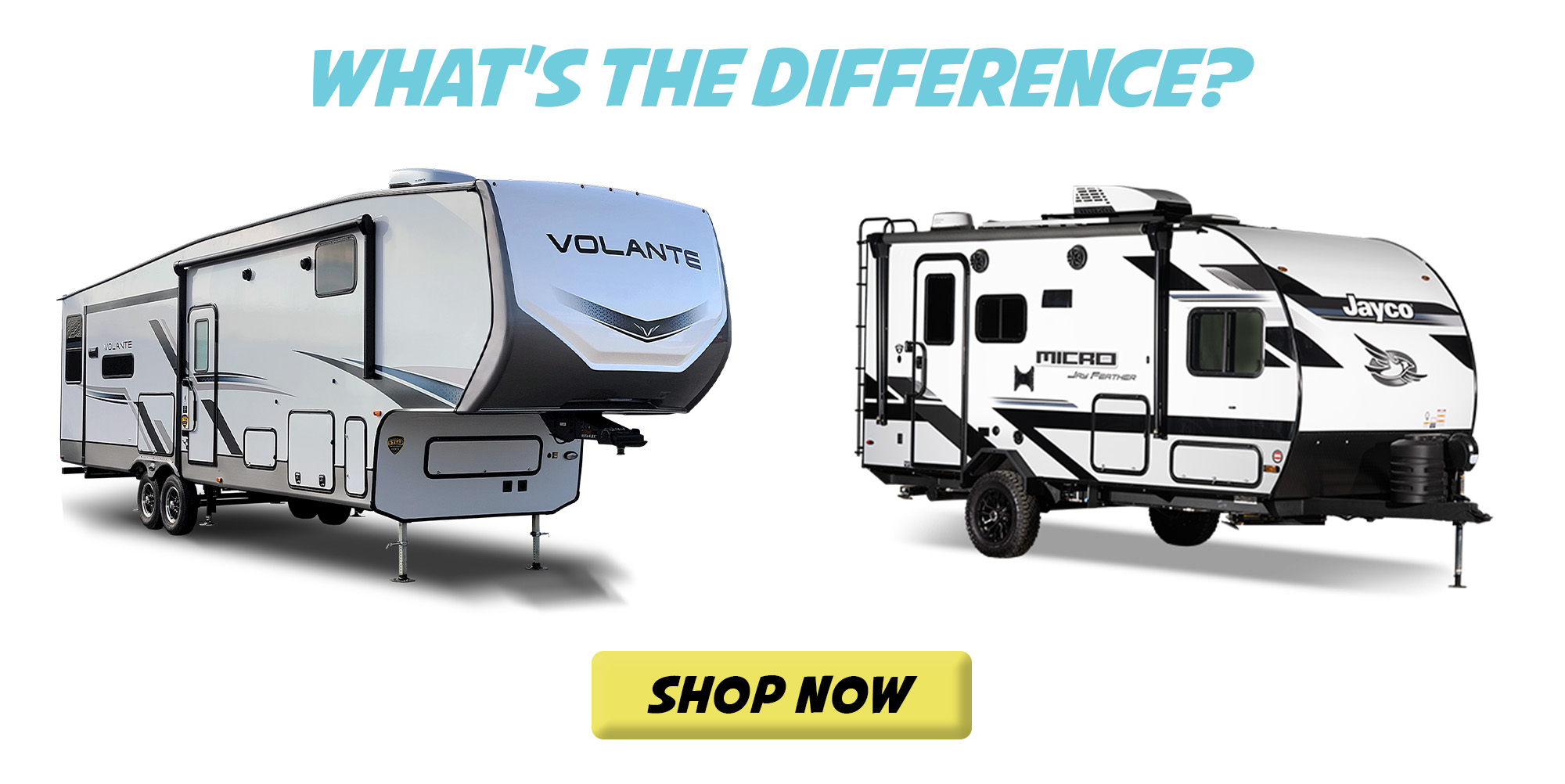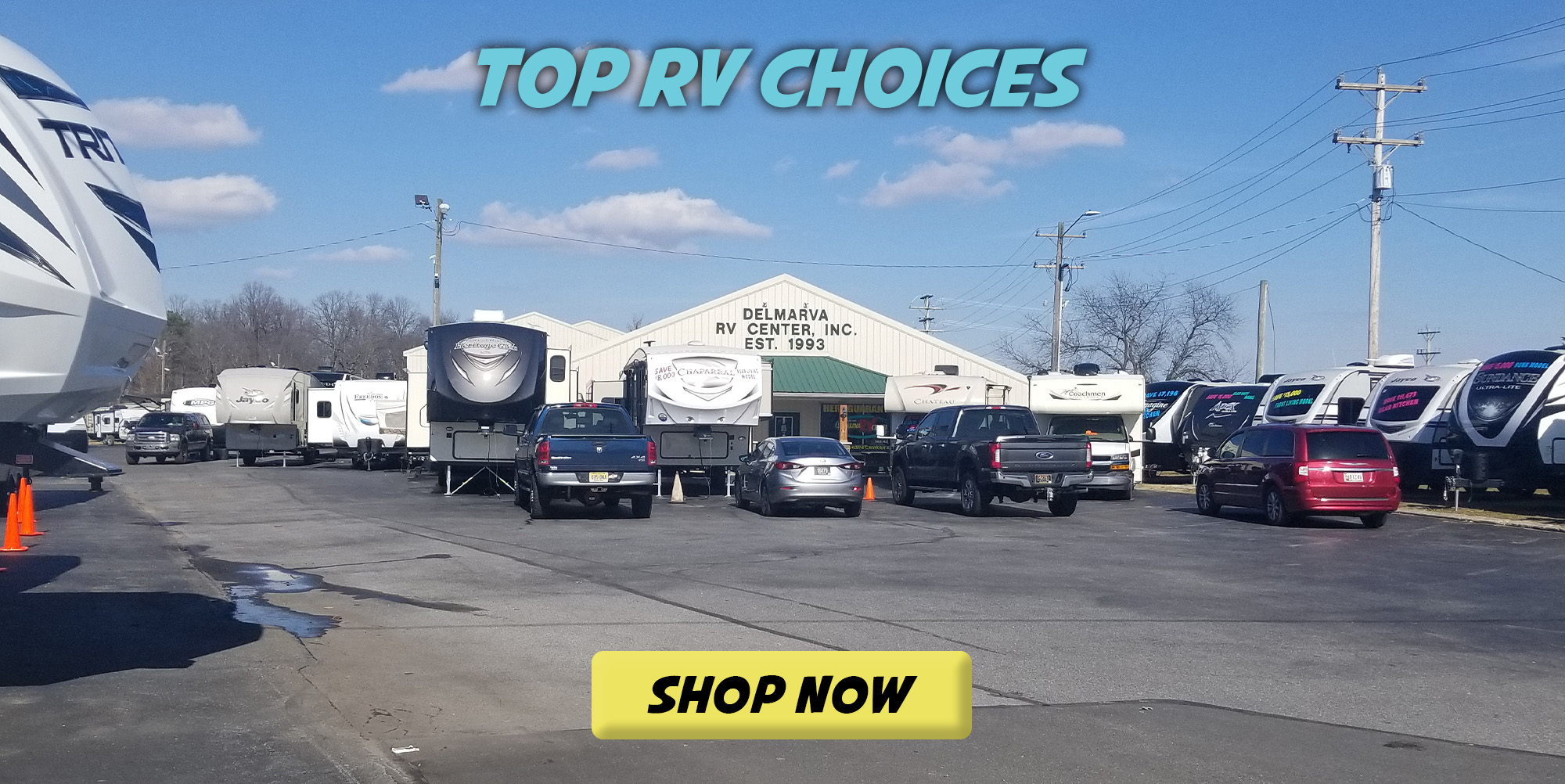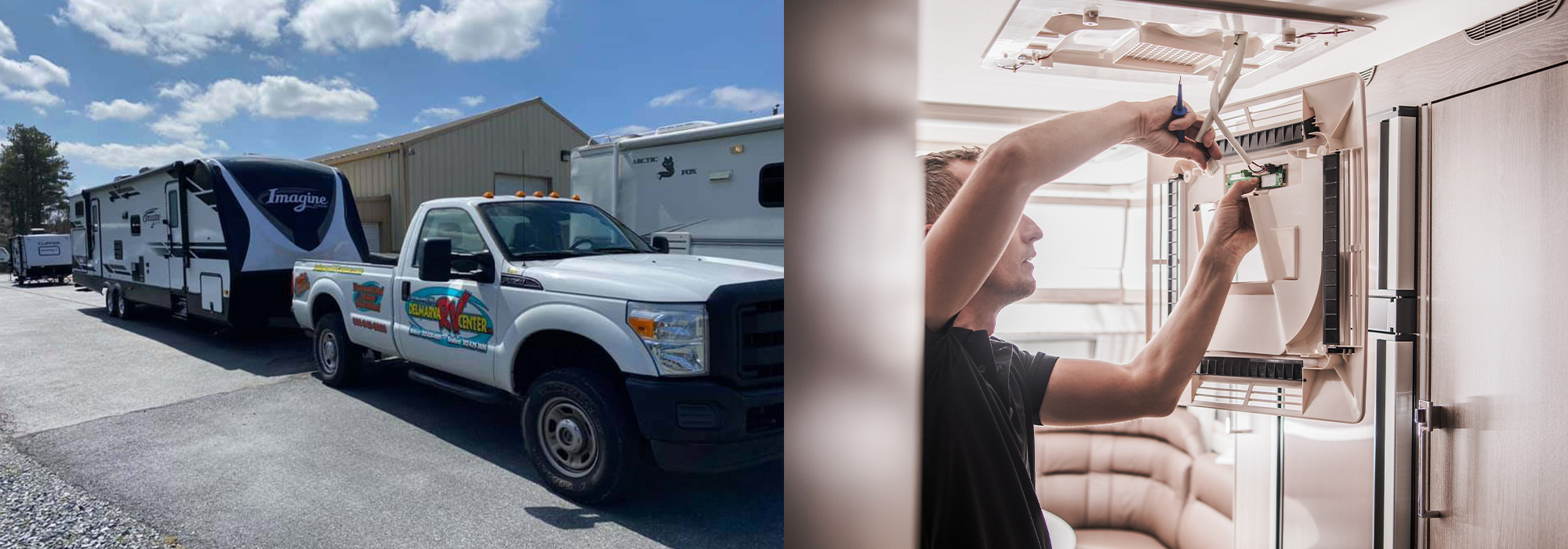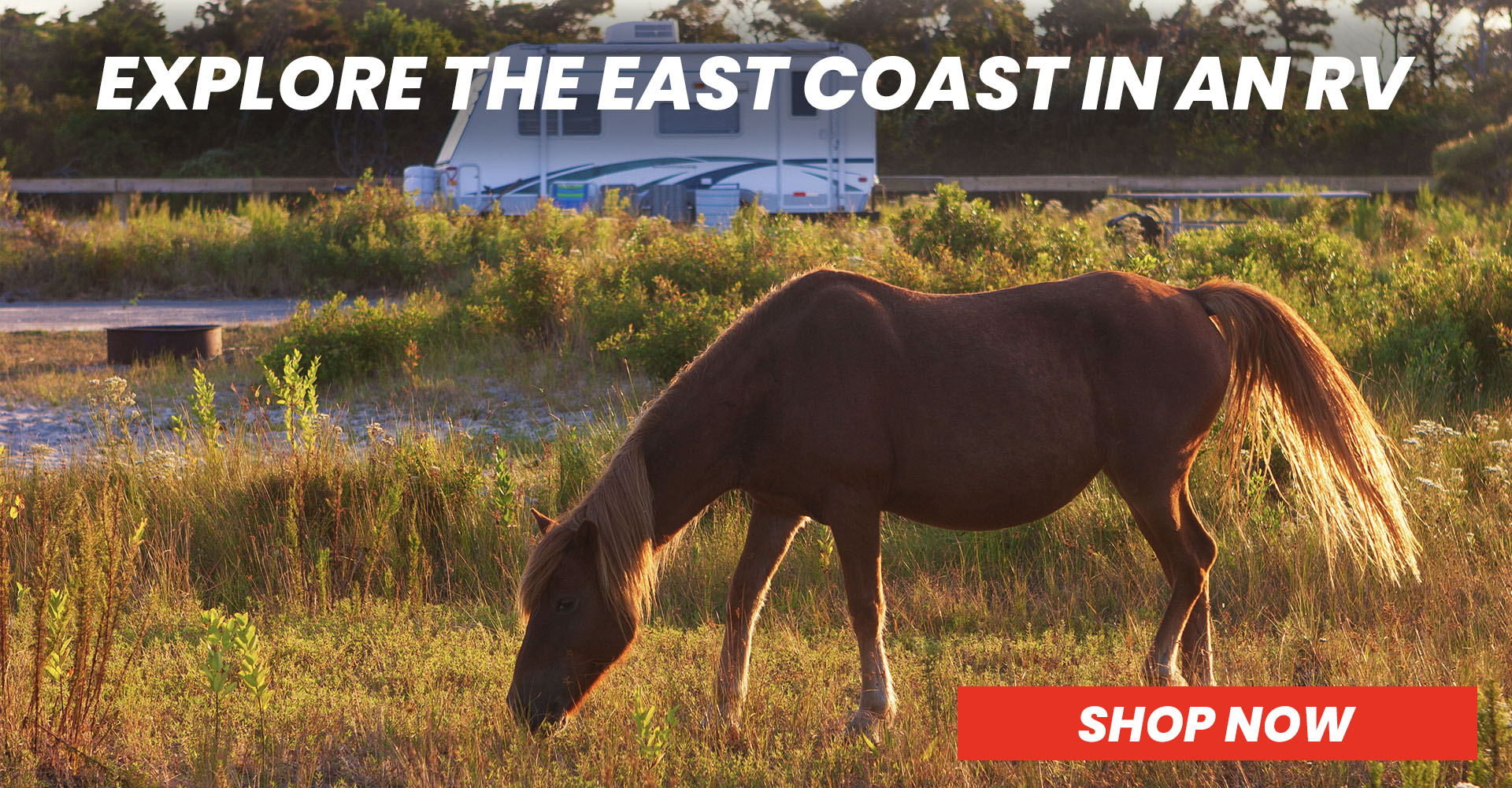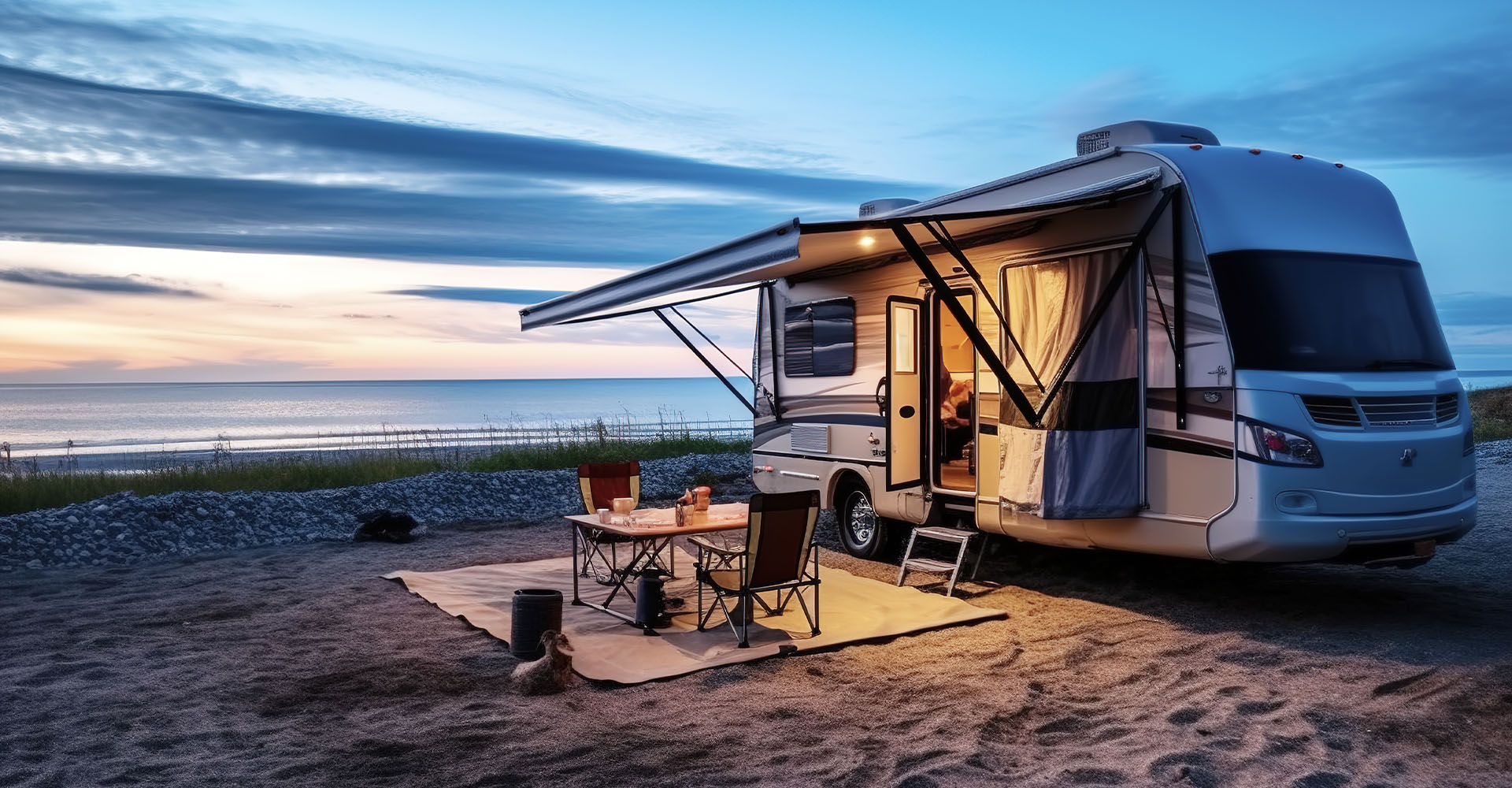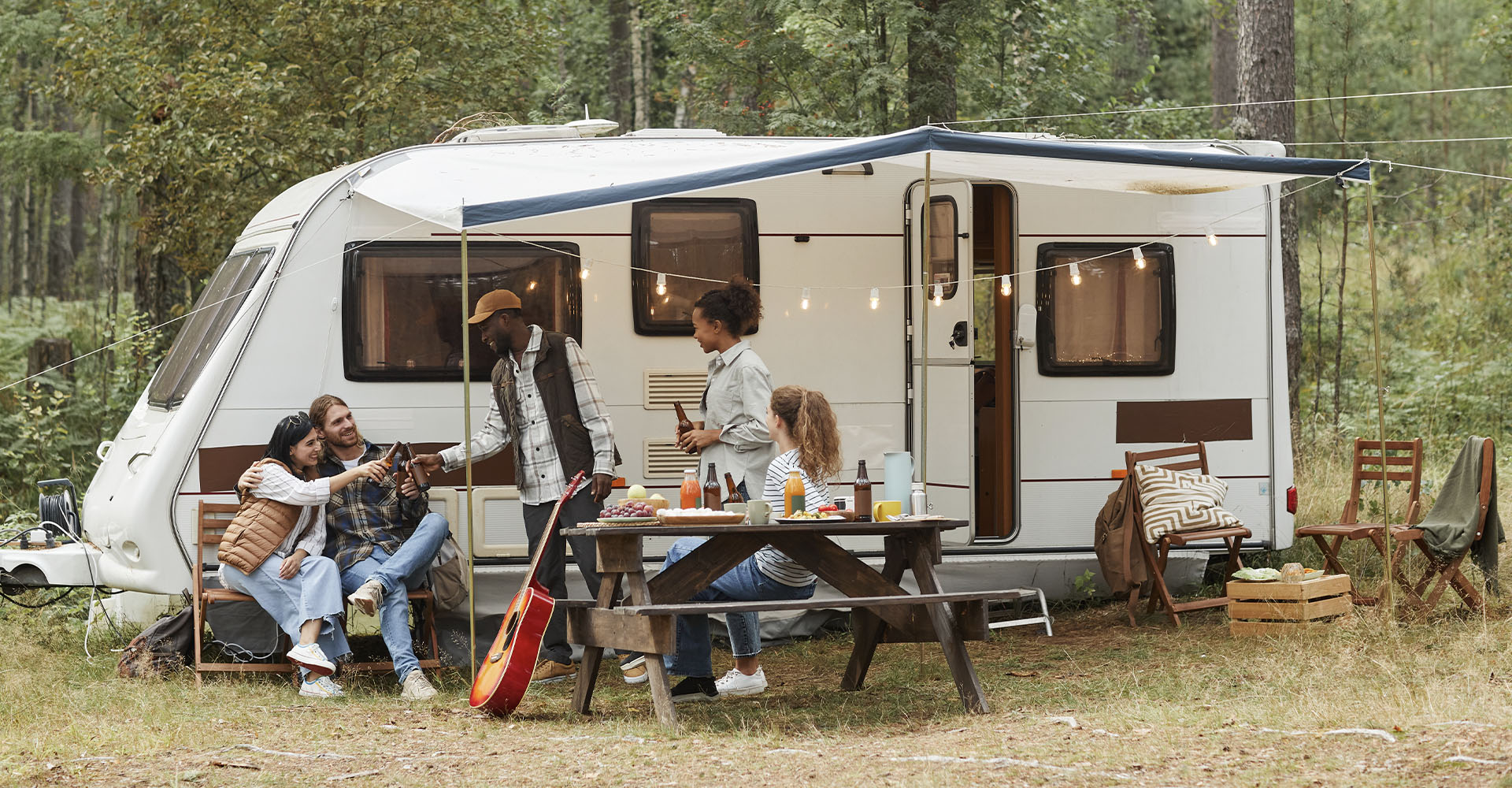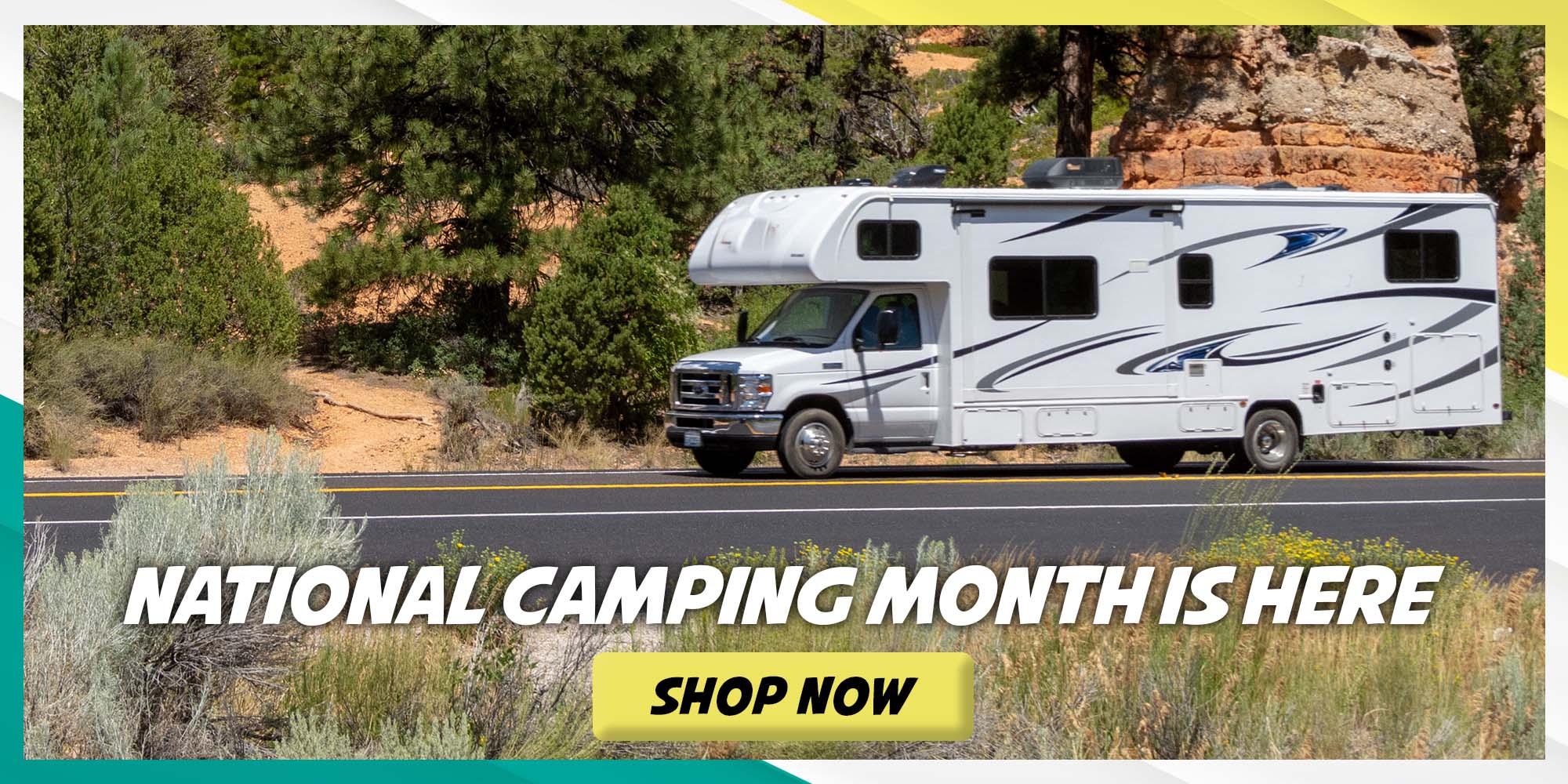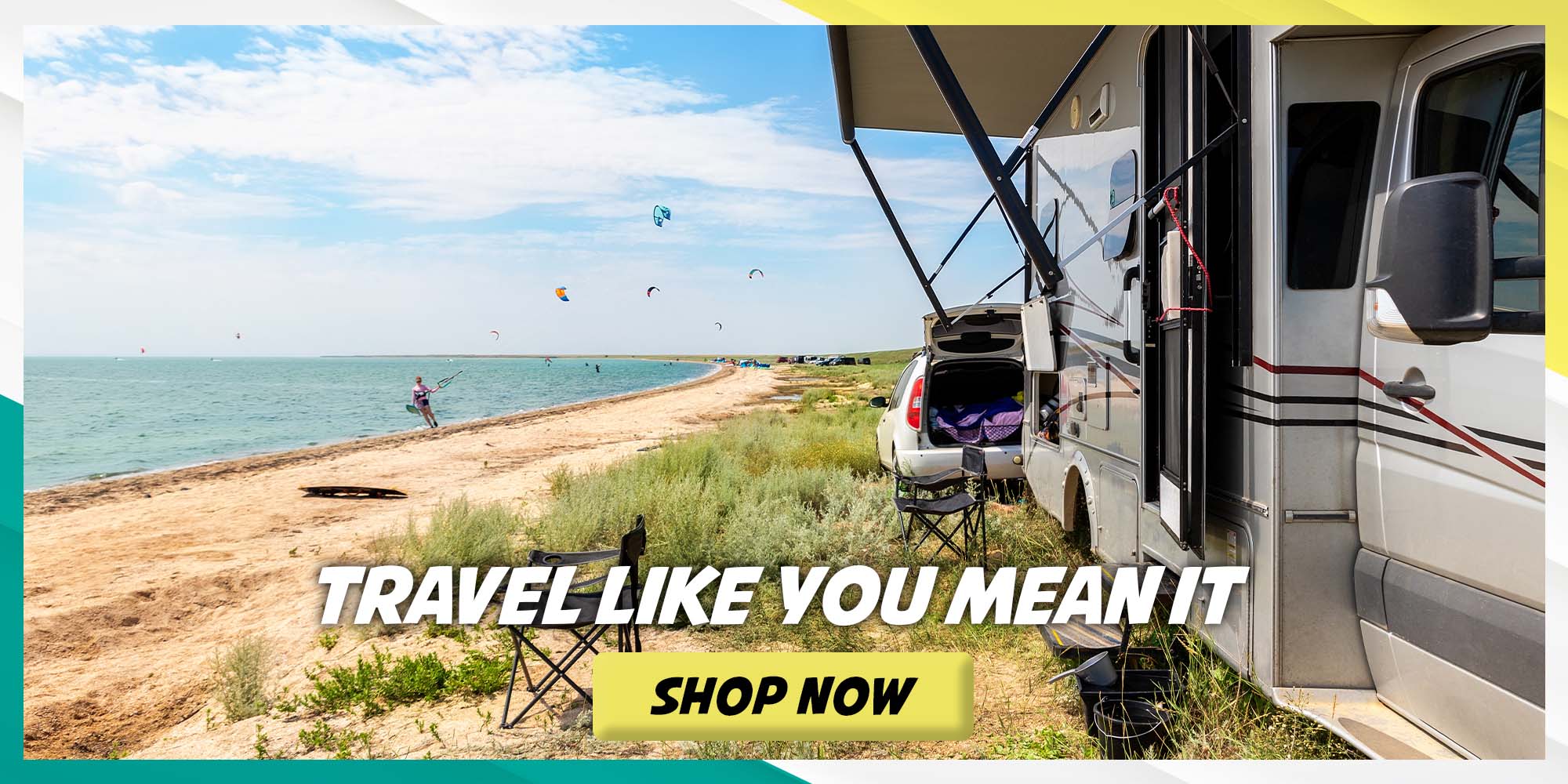Travel-Ready Campers
When deciding on your next adventure, Delmarva RV Center in Delaware knows you have various options, but learning what makes each option unique to suit your preferences makes preparations and decisions easier for you. We’re going to compare the 5th wheel model vs. the travel trailer so you can decide how you want to gear up to take on the journey ahead.
Contrasting the Trailers
One of the key distinctions of the 5th wheel camper vs. the travel trailer is that it has a “tongue” that extends from the top of the cabin and hangs over the truck bed of the pickup truck qualified to haul it. They also tend to weigh heavier, from as little as 5,000 lbs. up to 20,000 lbs., and average anywhere between 25 ft. to 45 ft. in length. A travel trailer, on the other hand, has a rectangular body and could actually be attached to an SUV, pickup, or any car with the appropriate towing capacity and ball hitch. They weigh as little as 1,200 lbs. and up to 8,500 lbs. on average, and are generally 10 ft. to 38 ft. in length. A 5th wheel is typically equipped with more luxurious living amenities than a travel trailer, as it has large living rooms, kitchens, fireplaces, multiple bathrooms, 3-5 slideouts to expand the overall living space, and elevated spaces to provide more privacy. The travel trailer utilizes its space for similar features, but to a lesser degree, as it’s geared towards minimalism. Keeping these facts in mind will help you decide between the 5th wheel model vs. the travel trailer.
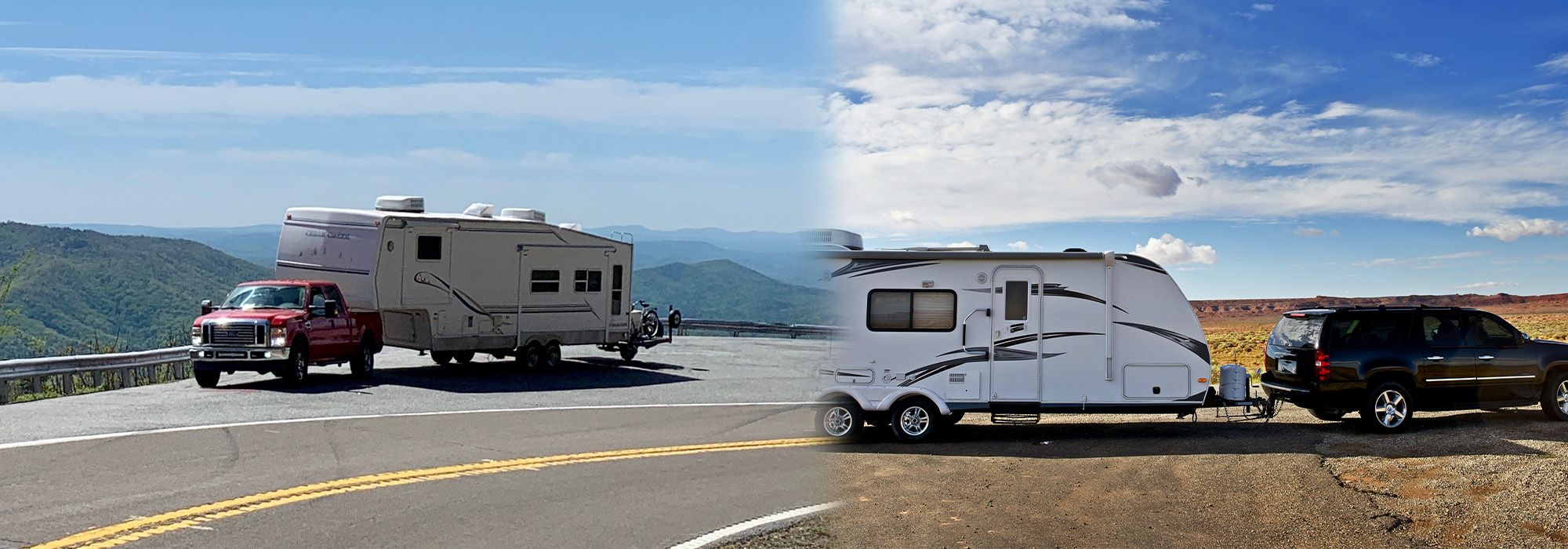
Bumper Towing vs. 5th Wheel Towing
When discussing the towing abilities of the 5th wheel vs. the travel trailer, there are two kinds they’re able to utilize. With bumper towing, it uses the towing hitch on any-sized vehicle capable of hauling travel trailers, and they’re cheaper to maintain. It also doesn’t put any strain on the vehicle’s wheels, but it’s slightly difficult to maneuver due to the pivot point between them. 5th wheel towing involves a hitch head that has a plate and jaws to wrap around the trailer’s kingpin. It’s a heavy assembly that takes up more space in the truck bed but provides smooth and stable towing. Additionally, it accommodates a variety of weight capacities and is great for RVs and recreational towing. Ultimately, it comes down to how often and how heavily you intend to tow, and whether or not you’re okay with the assemblies for bumper towing vs. 5th wheel towing.
See For Yourself
Now that you’re equipped with more understanding of the 5th wheel vs. the travel trailers, Delmarva RV Center is prepared to help you gear up for your trip. Pay us a visit to get started.
*See dealer for complete details.
